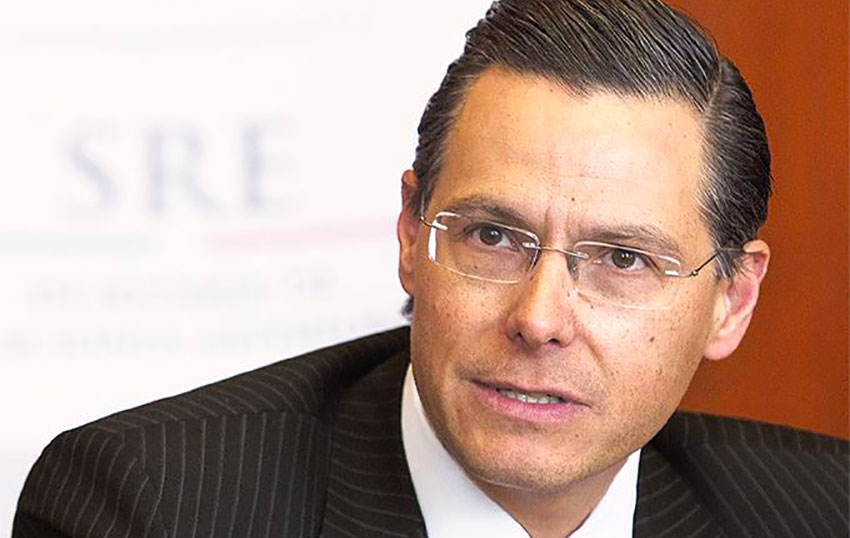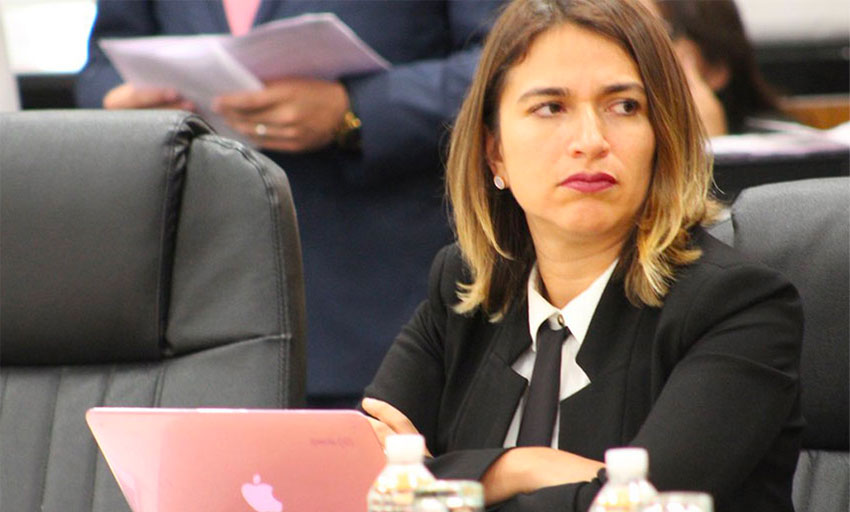As Mexico’s economy descends into its deepest recession in decades, the government has deployed its top weapon to keep tax revenue flowing: a diminutive, sweet-spoken and tough-as-nails official who has squeezed US $800 million in long-contested payments out of big companies.
After taking over at the tax agency SAT in January, Raquel Buenrostro — her surname means “nice face” but her nickname is “Iron Lady” — has proved her mettle by boosting tax revenues 5.6% in the first four months of 2020.
And despite the economic paralysis caused by Covid-19 and Mexico’s history of woefully low tax collection, President López Obrador said state revenues were still up 2.5% in January to May compared with last year. Official data is not yet out.
He called it “a miracle,” and to achieve it, Buenrostro — who is one of the president’s most trusted officials, and rumoured as a potential future finance minister — has trained her sights on big companies, which the government brands as tax dodgers.
She has convinced the Mexican unit of U.S. supermarket group Walmart, Coca-Cola bottler and convenience store operator Femsa, as well as IBM and companies owned by Carlos Slim, Mexico’s richest man, to pay up. Fresnillo, the world’s biggest silver miner and part of Mexico’s Grupo Bal, has also paid just over $205 million in taxes, according to a regulatory filing in the U.K., where it is incorporated.

Walmart and Femsa, in statements to the stock exchange at the end of May, said they were paying 8.079 billion pesos ($374 million) and 8.79 billion pesos respectively. Walmart said it was to “conclude substantial fiscal matters”, while Femsa said its payment “finalized differences of interpretation” over taxes paid abroad. The companies did not admit any wrongdoing.
Carlos Slim has not disclosed any sum. López Obrador announced IBM would pay 669 million pesos and said the auto maker Toyota had made payments as well, although no further details were available.
No one at SAT had immediate comment.
The president, who is crusading to eradicate corruption and has ruled out tax increases, said in April the government would pursue “those who don’t want to pay” via administrative sanctions and criminal charges. He said 15 large companies owing 50 billion pesos in back taxes had been identified, although he did not name them.
Buenrostro, who says steel, pharmaceuticals, food, cars, mining, retail and energy companies have the biggest debts, told the Reuters news agency four or five criminal complaints had been filed against companies, but no details were immediately available.
Experts said the prospect of being in trouble with an authority that had emerged as one of Mexico’s most powerful institutions was enough to convince many people and companies to put their tax affairs in order.

But they fear that officials’ big stick — legal reforms last year that allow executives of companies and individuals accused of tax crimes to be jailed before trial — could easily be abused.
“I believe it’s fiscal terrorism,” said Max Diener, a professor and former federal tax prosecutor. He called Buenrostro an “excellent public servant” but feared she had enormous and “very dangerous” discretionary power.
“They are using undue pressure and coercion to get deals,” including “unprecedented” requests for information, said Enoch Castellanos, head of the Canacintra industry group that represents mostly small and midsized businesses.
Castellanos said SAT had started cracking down on businesses that did not make payments by the 17th of every month — a tougher stance than previously. “On the 18th, they start proceedings and apply a fine equivalent to 50% of the debt,” he said.
Buenrostro, a mathematician, had worked in the Mexico City government when López Obrador was mayor, as well as other federal positions. She has emerged as one of the president’s key lieutenants after saving an estimated $9 billion by slashing spending and centralizing government procurement in the government’s first year in office.
When it comes to tax collection, Buenrostro has argued that she is just being fair and efficient. “Everything is in line with the law, everyone has to comply,” she told legislators this month, promising “zero privileges and zero waivers.”
She added: “It’s not fiscal terrorism because people are paying up. Those who feel threatened and pressured are the ones who aren’t.”
Higher collection is a boon for a country where tax revenue represents only 16% of gross domestic product, the lowest level in the OECD. Despite López Obrador’s optimism, tax revenue fell 25% in April, compared with March, as the Covid-19 recession bit. Economists expect GDP to fall almost 9% this year.
“It’s good if they’re collecting old debts, but it won’t be enough,” said Mariana Campos, a public finances specialist at México Evalúa, a think tank.
“Tax collection is obviously going to fall further” because of the economic contraction, said Diana Bernal, a former taxpayers’ ombudswoman. She said SAT was strong-arming some companies into paying even while the sums in question were being disputed in court or still under audit.
“They want to sell the story that the rich [people and corporations] don’t pay tax,” she said. According to OECD data, however, Mexico earns a fifth of tax revenue from corporate taxes, the highest proportion in the OECD.
Buenrostro’s tactics in previous roles have stirred controversy. Her centralized purchases last year created bottlenecks that led to shortages of important medicines, and her power pushed Carlos Urzúa to quit as finance minister in July last year.
Nevertheless, she plans to push ahead, and businesspeople expect her to succeed. “Raquel Buenrostro is very good at collecting,” Bernal said. “But it’s very easy when you have a garrotte in your hand.”
© 2020 The Financial Times Ltd. All rights reserved. Please do not copy and paste FT articles and redistribute by email or post to the web.
